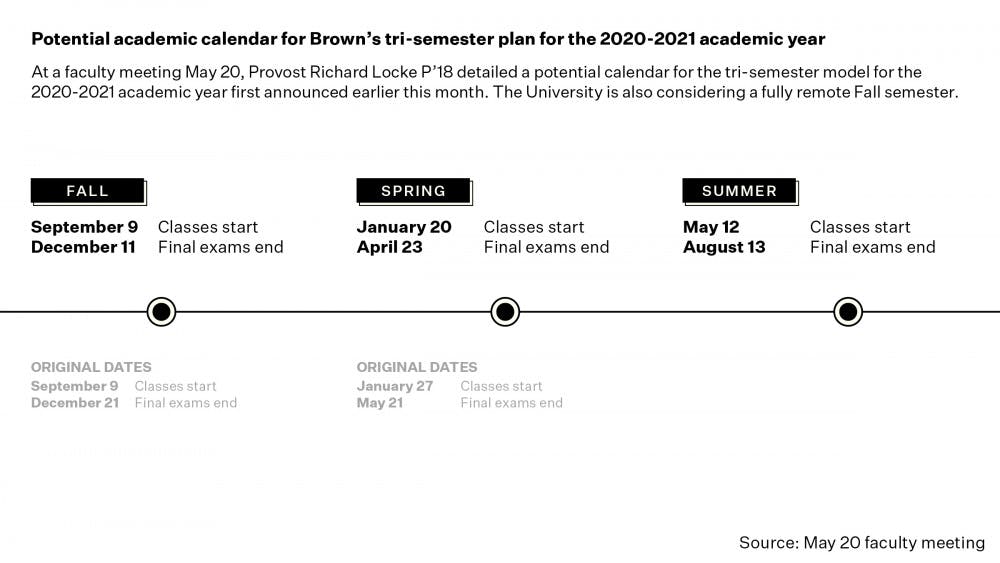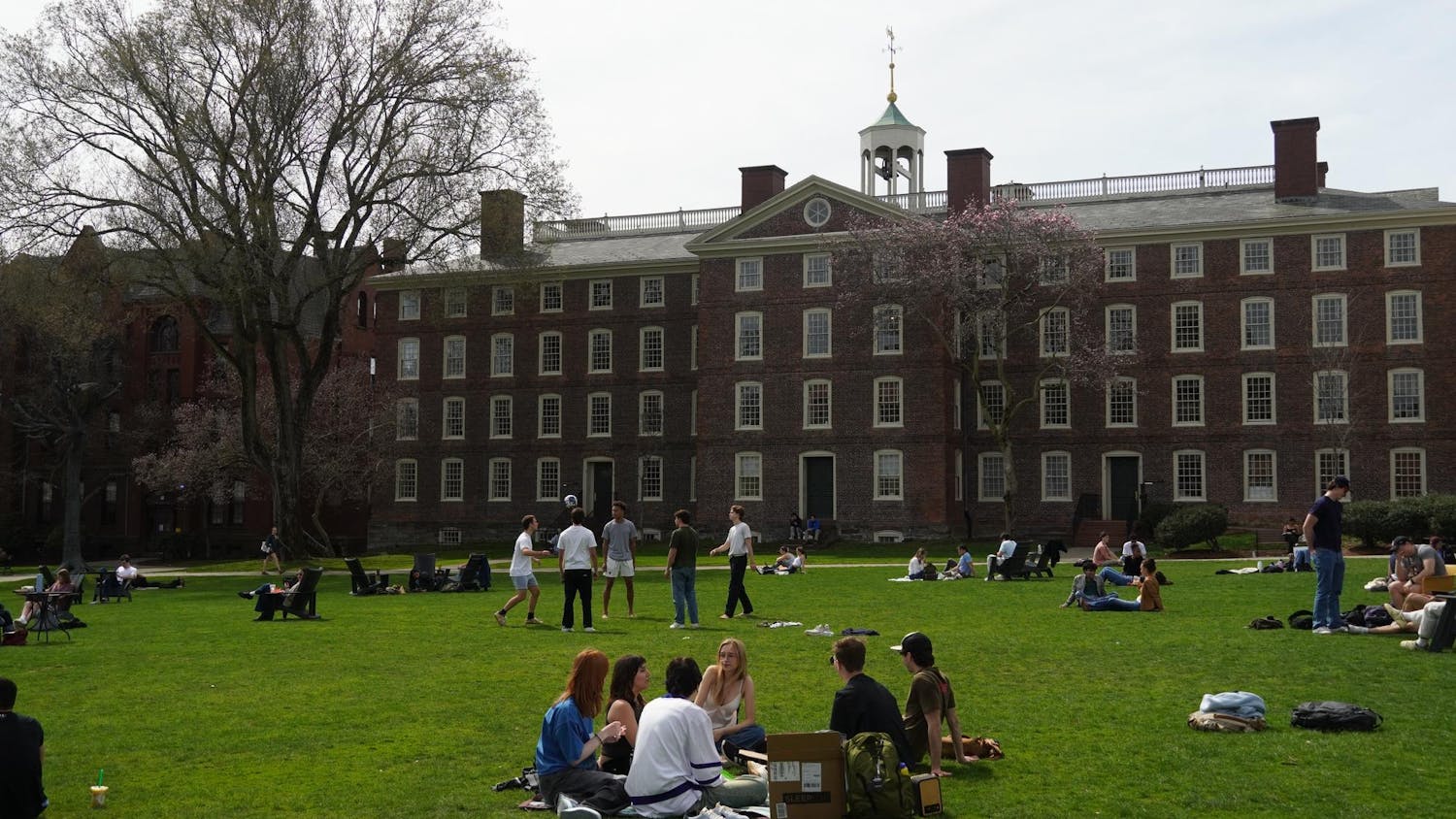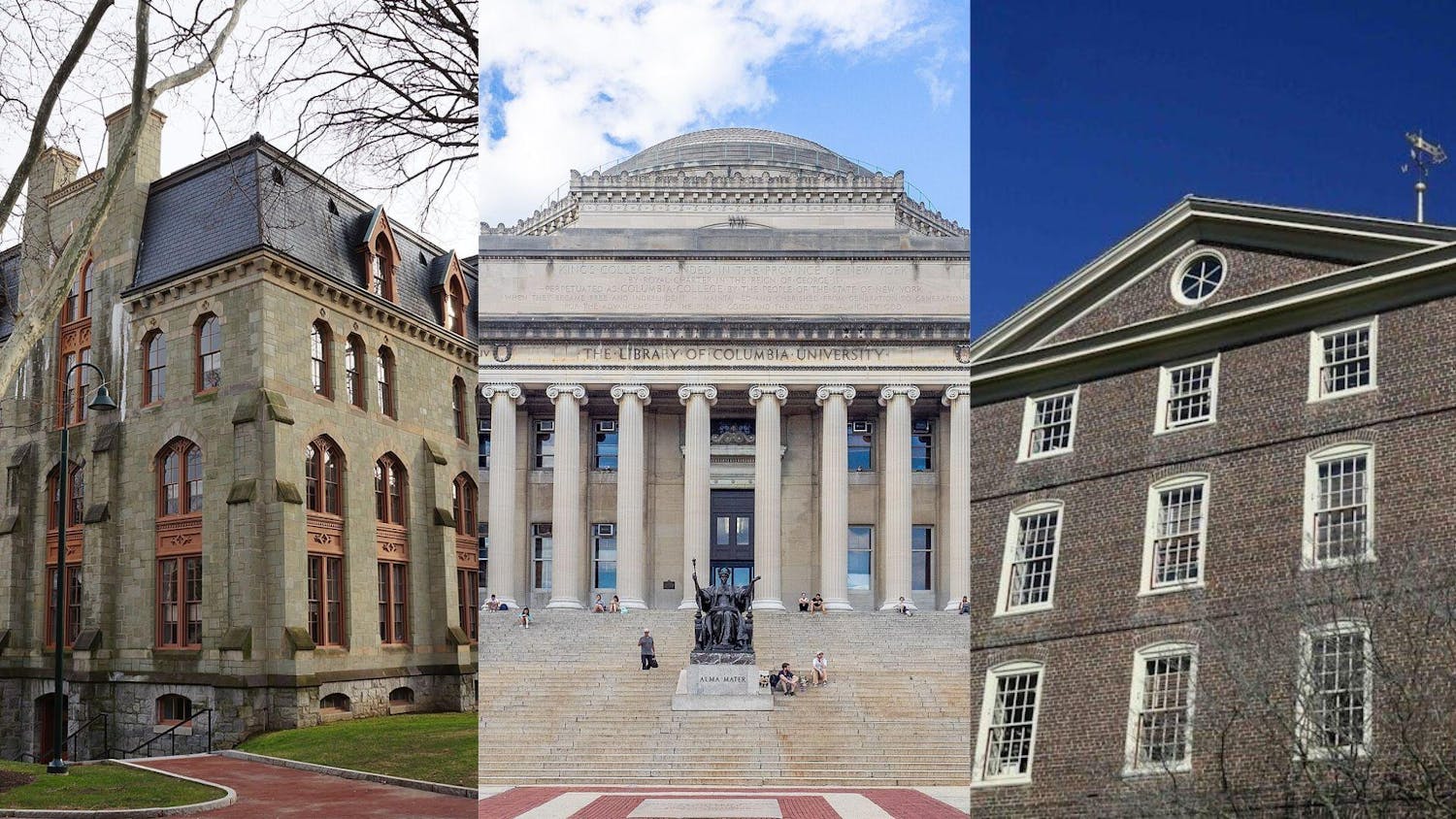Updated 3:16 p.m. May 23, 2020
At a special faculty meeting Wednesday, Provost Richard Locke P’18 detailed a potential tri-semester model for the 2020-2021 academic year, but also explained that the University is preparing for the possibility of a fully remote fall semester.
To accommodate the possible residential tri-semester model, first outlined in a community-wide email May 6 and described in a May 5 faculty meeting, the University is designing a new academic calendar. In this model consisting of fall, spring and summer terms, which would require every student to complete two semesters out of these three, classes would start and end earlier, and spring break would be replaced with three small breaks to avoid student travel. Students would also have the option to depart from campus earlier and have a remote reading and finals period.
A typical semester at Brown is 15 weeks long and includes 64 to 69 days of instruction. For the next academic year, Locke said the University has received approval from federal and regional guidelines to implement a 60-day semester that spans 14 weeks.
On planning for in-person learning in the fall, Locke said, “We need to do this, not just because it will be a good thing for our reputation or be better for us in the sense that we lose less money if we do a residential experience, but (because) it’s intrinsically valuable to the core of our mission.”
According to Locke, under the tri-semester model the upcoming fall semester would “more or less look like it always does.” Classes would start on Sept. 9, the Wednesday after Labor Day, but students would be able to arrive on campus earlier in order to self-quarantine before classes begin. The break for Indigenous Peoples’ Day would be maintained.
Classes would end right before Thanksgiving and grades would be due Dec. 14. Students who leave campus for the holiday could remain away from campus and conduct their reading period and final exams remotely. Students would have the option to stay on campus for those periods if they do not leave Providence for the Thanksgiving break.
But Locke highlighted that a residential fall is extremely dependent on how safe it is for members of the community to return.
“We would never ask anyone — faculty, staff or students — to return to campus unless it was safe for them to do so,” Locke said. “And by safe, we mean determined by public health guidelines, data and the state of Rhode Island guidelines.”
If the next academic year does include an on-campus fall semester, the University would not force individuals to return to campus. The University is “going to be prepared to teach all of our courses remotely.”
A survey was sent to faculty to determine what support they would need in order to teach their fall courses remotely, if necessary. Locke expressed confidence that over the next three months, courses can be properly adjusted for virtual learning, and that Brown would still offer “world class instruction.”
President Christina Paxson P'19 added the University will soon start “active surveillance of COVID-19 on campus." This will include tracing and testing for employees and research that eventually return to campus this summer. Paxson explained that she believes this “will be a great way to reassure people that things are good,” while also functioning as an “early warning system if we start to run into problems.”
The pandemic and a three-semester schedule would also change the academic calendar for the rest of the year.
On Jan. 20, the spring 2021 semester would begin, and classes would continue until April 8. While the University would eliminate the week-long spring break, the potential spring calendar would still include three long weekends for Martin Luther King Day, Presidents’ Day and for a weekend in early April. According to Locke, the elimination of a week-long spring break would maintain safety by preventing having “people dispersed around the world and then (coming) back to the community.”
Like the previous semester, students would be able to leave campus after classes finished, and could have a remote reading and finals period from April 12-23. Final grades would be due on April 26.
According to Locke, this end date would allow the University to hold a commencement ceremony for the class of 2020 and the class of 2021 in early May, as The Herald previously reported.
Classes for the new summer 2021 semester would begin on May 12 and would end July 30. This period would include two long weekends during Memorial Day and Independence Day. Like the other semesters in this academic year, students would be able to depart campus and have a remote reading and finals period from Aug. 2 to Aug. 13, with final grades due on Aug. 16.

ADVERTISEMENT




